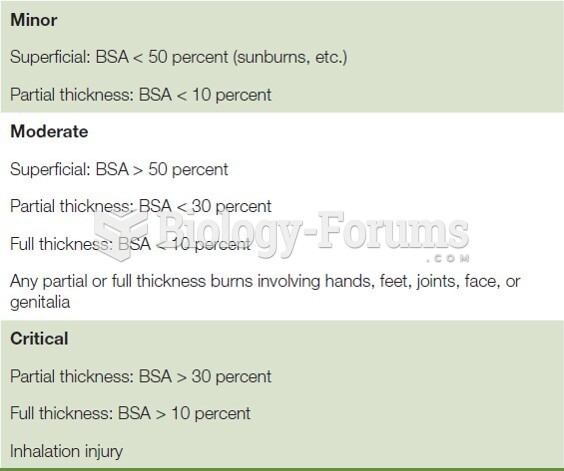|
|
|
Despite claims by manufacturers, the supplement known as Ginkgo biloba was shown in a study of more than 3,000 participants to be ineffective in reducing development of dementia and Alzheimer’s disease in older people.
The calories found in one piece of cherry cheesecake could light a 60-watt light bulb for 1.5 hours.
Asthma is the most common chronic childhood disease in the world. Most children who develop asthma have symptoms before they are 5 years old.
Before a vaccine is licensed in the USA, the Food and Drug Administration (FDA) reviews it for safety and effectiveness. The CDC then reviews all studies again, as well as the American Academy of Pediatrics and the American Academy of Family Physicians. Every lot of vaccine is tested before administration to the public, and the FDA regularly inspects vaccine manufacturers' facilities.
Excessive alcohol use costs the country approximately $235 billion every year.
 (a) Longevity decreases with increased horn-length breeding value of harvested rams. (b) Mean-weight
(a) Longevity decreases with increased horn-length breeding value of harvested rams. (b) Mean-weight
 For centuries, widows in the Mediterranean countries, such as thise widow in Greece, were expected ...
For centuries, widows in the Mediterranean countries, such as thise widow in Greece, were expected ...





